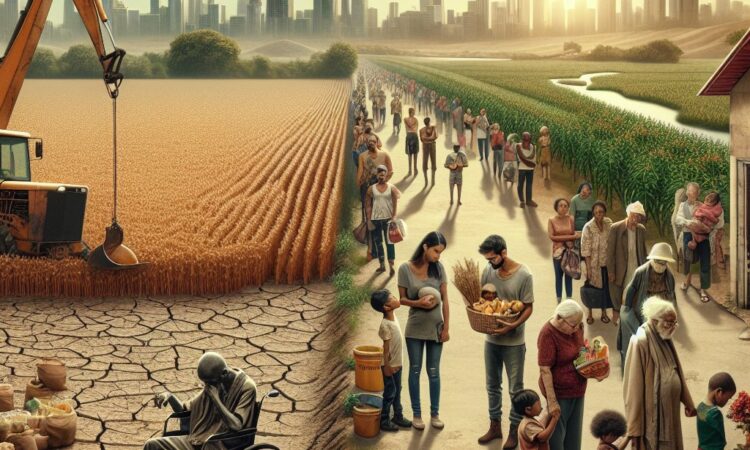The World Food Crisis
The world food crisis is a major humanitarian crisis that is affecting millions of people around the world. The crisis is being caused by a number of factors, including conflict, climate change, and economic hardship.
Conflict is one of the leading causes of the world food crisis. In regions affected by conflict, farmers are forced to abandon their crops and livestock, leaving large areas of agricultural land unused. The disruption in food production and distribution systems exacerbates the shortage of food, leading to increased hunger and malnutrition.
Climate change is also contributing to the world food crisis. Erratic weather patterns, such as prolonged droughts or heavy rainfall, are becoming more frequent, negatively impacting crop yields. Extreme weather events destroy crops, making it difficult for farming communities to recover and meet the food demand of their populations.
Economic hardship is another factor that contributes to the crisis. Rising food prices make it challenging for vulnerable populations, particularly those living in poverty, to afford an adequate and nutritious diet. Unstable economies, high levels of unemployment, and limited access to resources further worsen the situation.
The consequences of the world food crisis are severe. Malnutrition, hunger, and food insecurity are widespread, particularly among children and marginalized communities. Long-term effects on health, education, and economic development are detrimental, perpetuating the cycle of poverty.
To address the world food crisis, it requires a multi-faceted approach. International organizations, governments, and communities must work together to promote sustainable agriculture, invest in infrastructure for food production and distribution, and support policies that prioritize food security. Efforts to mitigate the impacts of climate change and resolve conflicts are also essential.
It is crucial to raise awareness about the world food crisis and advocate for global cooperation to ensure that everyone has access to sufficient, safe, and nutritious food. By taking action, we can alleviate the suffering caused by the crisis and build a more equitable and resilient world.

